Countering China’s influence at the Pacific forum
It’s been a bad week for Beijing, but our government needs to stick to what it promised Australians on climate and security.
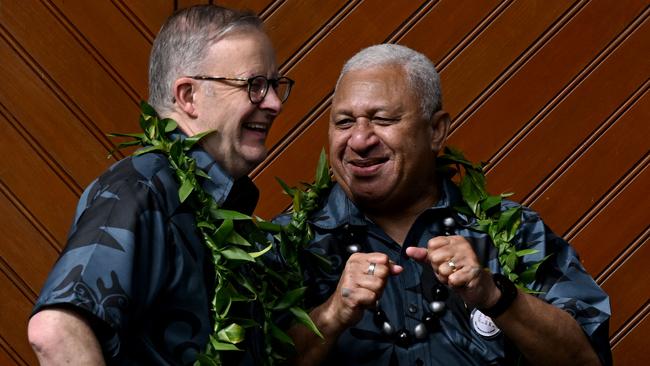
That’s a good trifecta in a good week in South Pacific diplomacy. And the Pacific Islands Forum just about held together.
But we shouldn’t lose sight of the fact that much South Pacific politics is pure fantasy, many of our own national positions are essentially flim-flam, American promise in this region is subject to significant scepticism, China won’t go away, and all our fundamental strategic problems remain. Indeed, our position may still be deteriorating long term.
But we shouldn’t be churlish. The Albanese government and Australian security have had a good week.
The Pacific Islands Forum held in Suva, Fiji, broadly rebuffed any Chinese role in regional security, reaffirming that regional nations (including Australia) should handle regional security. The Chinese were excluded from attending as a PIF dialogue partner.
US Vice-President Kamala Harris, on the other hand, was invited to address the summit via Zoom. Harris is not a commanding figure, in Washington or the Pacific. She is, at best, the least impressive vice-president since Dan Quayle. Not only is she inconsequential politically, she is not close to Joe Biden. Nonetheless, she delivered an important statement. She offered two new embassies in the region in Tonga and Kiribati; Peace Corps personnel to help with development; a new US envoy to PIF; and $US600m ($888m) over 10 years for economic development, fisheries and ocean resilience. That’s not a huge amount and it would need to be approved by congress. Nonetheless, it’s all to the good.
In World War II the US fought magnificently in the Pacific and secured Australia’s freedom, among other things. It deserves eternal gratitude. But in peace time its attention to the South Pacific has been sketchy, episodic.
Pacific leaders are familiar with transactional diplomacy, competitive geostrategic bidding. For many years Beijing and Taiwan competed for diplomatic recognition. Former defence minister Peter Dutton was more explicit than most senior politicians in implying that Beijing used bribes, a tactic Canberra cannot match.
Before China became a concern, the last time the US stirred itself in the South Pacific was in the 1980s. Soviet leader Mikhail Gorbachev gave a speech in 1986 in Vladivostok outlining a new Soviet Pacific strategy. Libya, oddly enough, acting as a Soviet proxy, was active in the region.
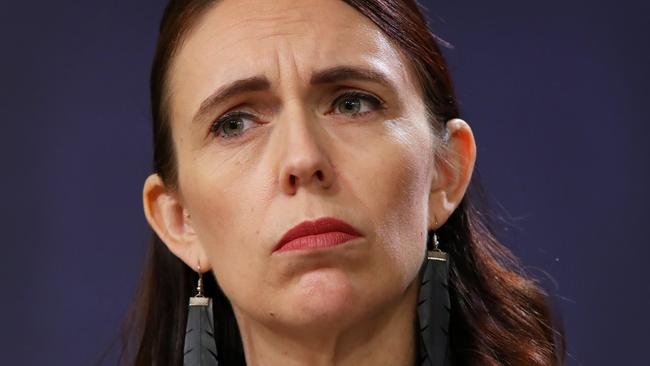
So the US got more active too, but then the Soviet Union collapsed and Washington lost interest. China is not the Soviet Union. It won’t collapse, go away or lose interest. A Chinese military base in the South Pacific would be disastrous for Australia, but it would also threaten US bases in the Pacific, including Hawaii.
Anthony Albanese, in contrast, has acquired a new and urgent interest in the Pacific. There are ways to tell it’s new, which is not to demean it. A more captious critic, perhaps at a less forgiving moment in the political cycle, might note that it’s a bit weird that the Prime Minister’s advisers allowed him to grievously mispronounce the name of Kiribati (pronounced Kirri-bass, not Kirri-barty).
Nonetheless, Albanese has embraced the Pacific. The unexpected, spontaneous man-hug Albanese shared with Solomon Islands Prime Minister Manasseh Sogavare was a high point, marvellous in itself, a priceless image, splendidly metaphoric.
Sogavare gave an interview expanding earlier commitments that there would never be a Chinese military base in the Solomons: “The moment we establish a foreign military base, we immediately become an enemy. And we also put our country and our people as targets for potential military strikes.” He said Australia remained Solomon Islands’ security partner of choice and he would call on the Chinese only if there was a gap in security that Canberra would not fill.
This requires interpretation. In one sense it’s nothing new. Despite signing a secret security agreement with Beijing, Sogavare always claimed he wouldn’t allow a Chinese military base in the Solomons. The Chinese themselves have said they don’t seek a base. Beijing’s reassurances can be equated with earlier promises never to militarise South China Sea islands, which is exactly what it did. But Sogavare’s new tone is radically different from a few months ago, when he found Australian warnings about a Chinese base insulting, a neo-colonial slander suggesting Pacific Islanders couldn’t manage their own affairs.
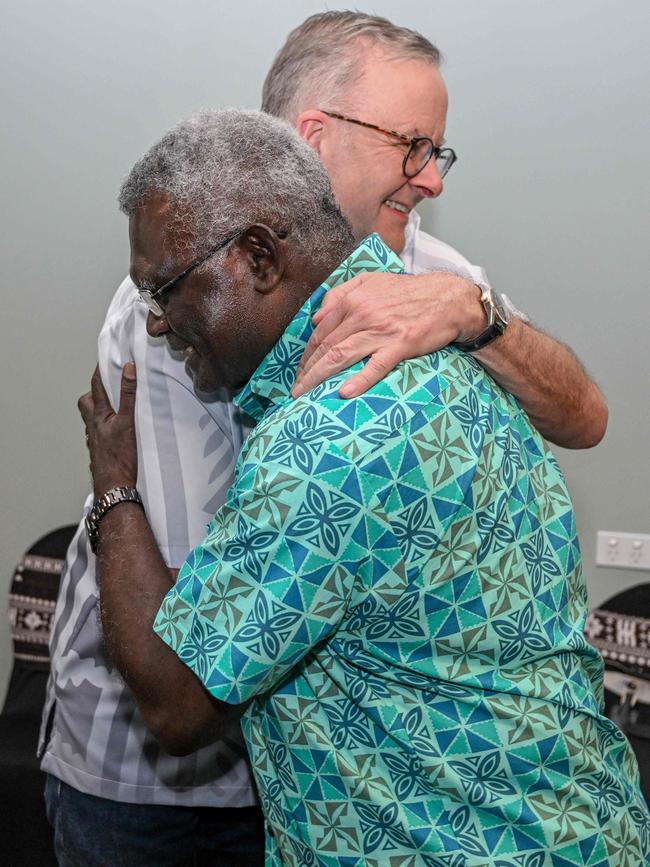
So what caused his change? How reliable is it? Sogavare’s change of heart, and his embrace, literal and political, of Albanese, is a win for Australian diplomacy. But that’s just one part of the story. The Americans had their own heavy dialogue with Sogavare; so did the Japanese, and others. PIF itself played a role. Sogavare was confident shouting Australia down over his Chinese security agreement, stereotyping the Morrison government etc. But defying his fellow Pacific leaders was something else. It’s the Pacific way for leaders not to be too confrontational, an echo of customs avoiding tribal conflict.
The US? Japan? PIF? Australia? Sogavare’s own mercurial temperament? Success has a thousand fathers.
But here’s another reality. By any standards, Sogavare is extremely changeable, a leader of unpredictable, wild mood and policy swings. He can weep with gratitude for Australia, then five minutes later denounce us as interfering colonialists. His language rejecting a Chinese military base was declaratory and welcome. One hopes Beijing wastes an enormous amount of money failing to secure its objectives in the region.
But it’s too early to take Sogavare’s verbal bouquet to the bank. If he really felt that way, why did he sign a security agreement with Beijing, allowing it ship visits and the right to protect its personnel and assets, in the first place?
The Albanese government manipulated one PIF dynamic superbly. It was almost entirely fraudulent but served the government’s political purposes and probably the national interest.
Albanese, Foreign Minister Penny Wong and all the Pacific leaders, in connivance with the Biden administration, gloried in selling the proposition that the wicked Morrison government neglected climate change, thereby alienating the South Pacific, and further, the Morrison government neglected the South Pacific. The new Albanese government, in contrast, is a climate change hero and loves the South Pacific.
This characterisation is monstrously unfair to the Morrison government, not that anyone cares about that at the moment. Nonetheless, it serves everyone’s political interests. The Morrison government promised to cut greenhouse emissions by 28 per cent by 2030 and predicted it would get to 35 per cent. The Albanese government promises a reduction of 43 per cent.
All these figures are as firm as tissue paper and as reliable as a mail-order diploma in romance. Australia could in any event cut its emissions in half and it wouldn’t make the slightest difference to global warming in the South Pacific. The difference between the actions of the last government and its successor will not affect South Pacific sea levels by a millimetre. Nor can anyone entertain the preposterous notion that Honiara signed a security agreement with Beijing because it was affronted by Canberra’s climate policy. China is responsible for a little under 30 per cent of the world’s greenhouse gas emissions and rising, Australia for a touch over 1 per cent and declining.
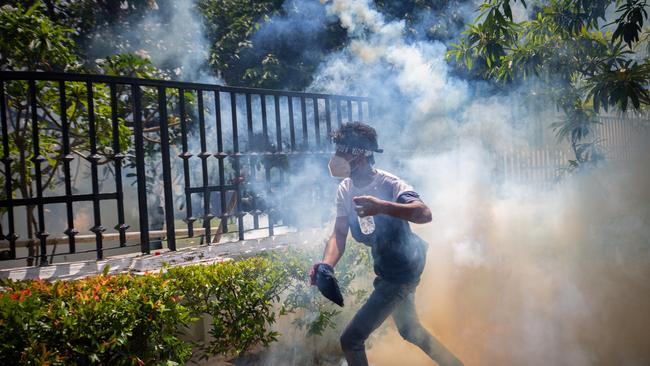
Australia will likely never build another coal-fired power station and several we do have will close in the next few years. China has 1100 coal-fired power stations and hundreds more planned and approved.
If climate were your lodestar as a Pacific Island leader, you wouldn’t want anything to do with China. But Pacific Island leaders are like national leaders everywhere. There is a large gap between their rhetoric and their actions. They also, like all national leaders, have lots of different interests to balance, including the need for money, investment, trade, aid, international leverage and everything else Beijing represents for them.
No doubt Pacific leaders believe everything they say about climate. But it’s also true that the issue gives them international prominence they couldn’t possibly get any other way. It reinforces their claims for aid and casts them as victims, rich nations as villains. Which leader anywhere could resist the rhetorical and political pay-off of that?
The politics of climate change aren’t as fraudulent and destructive as those of identity politics, but they embody similar dynamics. They are in some measure performative, ritualistic and no one can ever do enough.
Thus PIF endorsed the Albanese government’s wish to host, or co-host with the Pacific, a UN Framework Convention on Climate Change Conference of the Parties – COP – in 2024. This is a terrible idea. There is not a country in the world that has benefited by hosting COP.
Perhaps the Albanese government figures that the lead-up to such a jamboree would hopelessly and forever snooker the Liberal Party, as the associated climate change propaganda would be overwhelming. The Coalition, not exactly a profile in courage at the best of times, would find resistance futile. The Albanese government should be very, very careful about this. I think its climate policies will involve great cost and disruption for our economy. But no one can deny the government’s mandate for its 43 per cent reduction target, which involves more than 80 per cent of energy coming from renewables.
A large share of the early impression of common sense, steadiness and reliability that the Albanese government has established in its brief life so far comes from its continued commitment to do just what it said it would do – not more, not less.
Thus it has continued strategic positions with both the US and China while taking a slightly more emollient tone with Beijing. That’s just what it said it would do.
Given the performative, ritualistic and endlessly escalating nature of climate politics, Albanese could be tempted to offer just a bit more on climate, take the target up from 43 per cent to 50 per cent, to earn even more Pacific hugs, more glowing reviews from Europe, greater fellow feeling with the Biden folk. But the moment he does that, he has broken faith with the Australian people and invites a furious backlash.
Energy policy is in crisis all over the world and climate policies far less settled than they might seem.
In February, long before the Ukraine crisis, the New Yorker, the most pro-climate action magazine imaginable, ran a cover story on Germany asking What Does a Clean Energy Economy Look Like? Even then, on its cover, it declared: “The costs are high, including social division and a reliance on Russian natural gas”. Any switch to renewables is hugely expensive and involves higher energy costs and lower living standards.
Britain is experiencing this right now. Conservative party leadership contender Liz Truss has promised to remove green levies from energy bills.
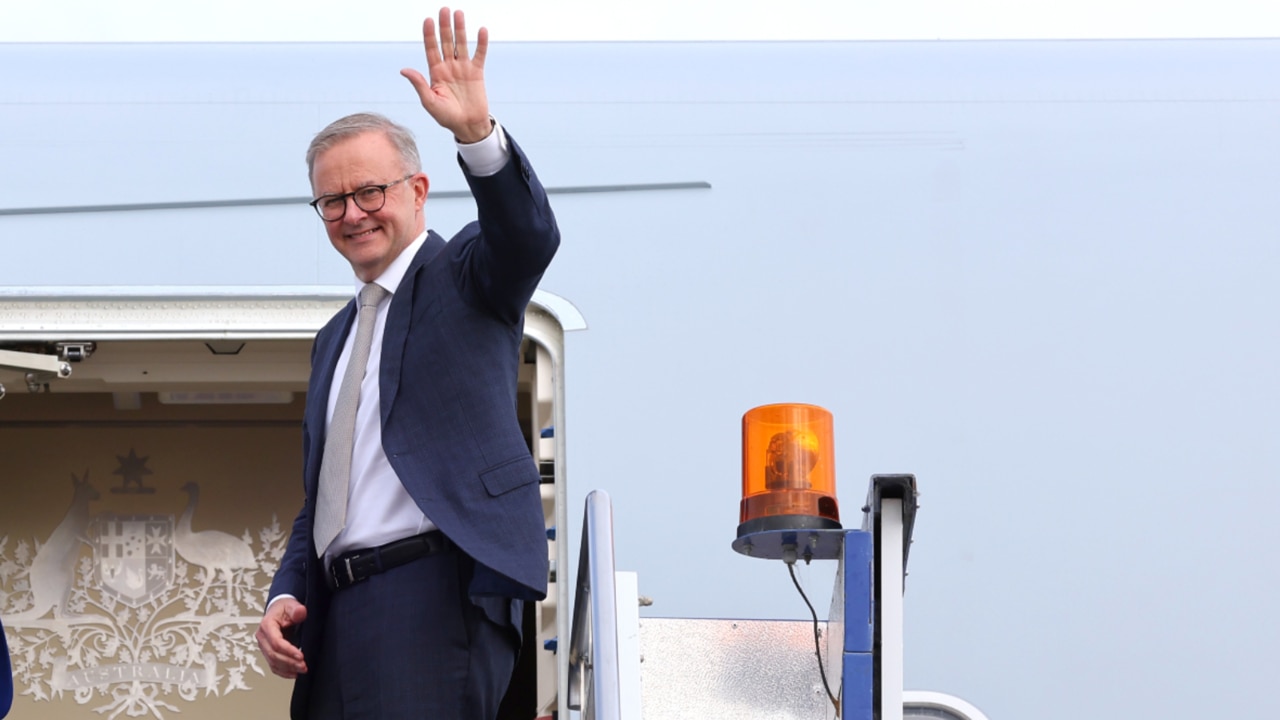
All over Europe, energy sectors are in crisis. Germany, The Netherlands, Italy are firing up mothballed coal-fired power stations. There is almost a state religion in Australia that coal is finished. I cannot recall how often on ABC panels and talk shows either a fellow guest or the compere has stated categorically to me that the market has moved away from coal, which is becoming obsolete.
Guess what. In May, coal was Australia’s No.1 export, displacing iron ore, worth more than $15bn in export income. Fiji Prime Minister Frank Bainimarama called on Australia by name, among other developed nations, to end all fossil fuel development.
If Albanese ever agreed to that, Australia couldn’t finance a candle, much less National Disability Insurance Scheme, Medicare, Defence and munificent aid to the Pacific.
Bainimarama declared his region could be “a clean energy super power”. Surely there must be a special prize for any national leader anywhere who has not made just that fatuous declaration.
Sri Lanka is a terrifying example of where contemporary currents of politics can lead a nation. From the West it got horrible woke weirdness – advice to abolish chemical fertilisers and go organic with the promise of ESG – environmental, social and governance – investment. Instead this halved its agricultural yield.
From China it got massive debt. The ravages of Covid, and a local terrorist bombing, killed its multi-billion dollar tourism industry. So Sri Lanka, a few years ago a middle-income country developing away from civil war, is now a basket case in the throes of social, political and economic collapse.
The Republicans will probably win the House of Representatives and Senate in November. Much Biden climate policy will go into reverse. The US was energy independent under Donald Trump. Now Biden is going to Saudi Arabia begging it to pump more oil.
Bainimarama would like Australia to abolish even its gas industry. But the EU, in a panicked concession to reality, now blesses gas and nuclear as sustainable, green energy sources.
Paris is worth a mass. The South Pacific is worth a climate hugathon. But the Albanese government needs to hold its nerve and stick to what it promised, on climate and security. If it does that, it will be doing more than enough.




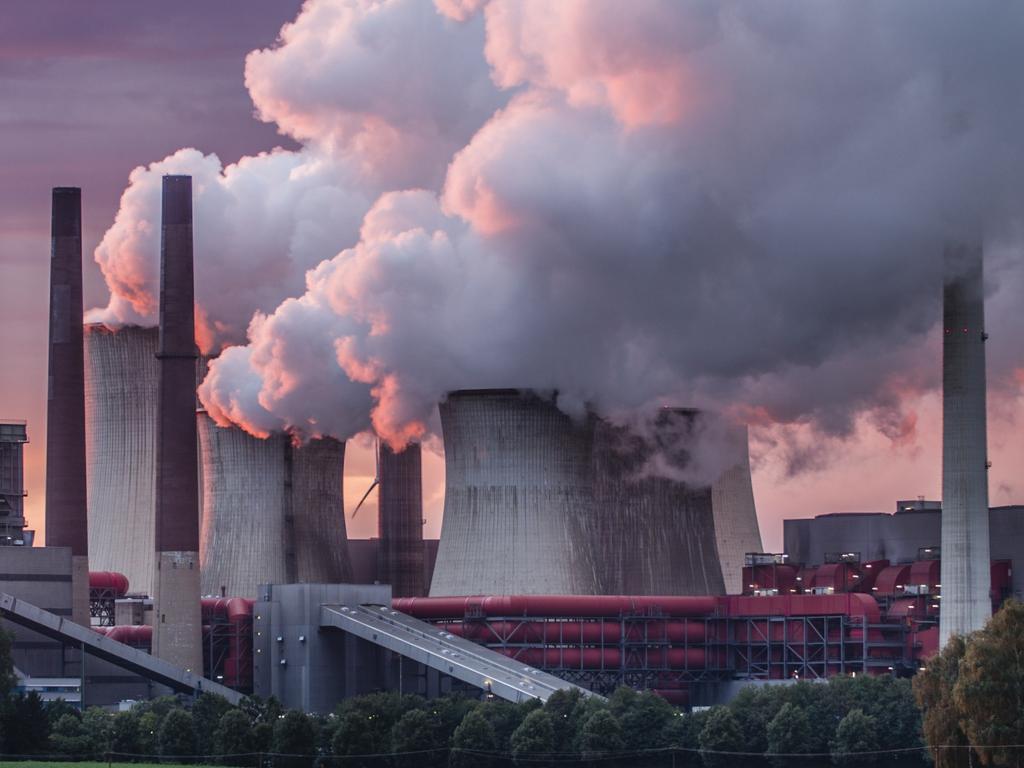


China got rebuffed, Australia got loved, America got involved.